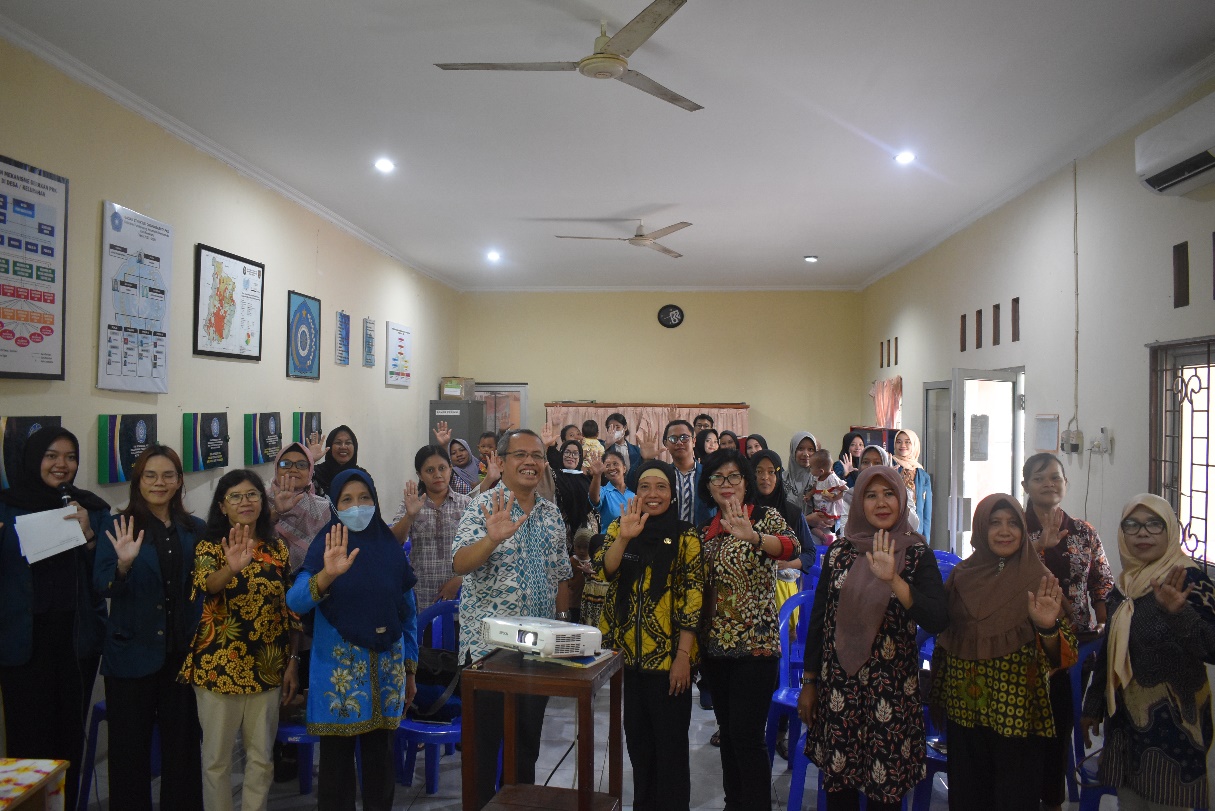On Thursday, November 28, 2024, Group 17 of the Faculty of Public Health, Diponegoro University (FKM UNDIP), held the “Child TB Awareness Socialization” activity at the PKK Secretariat in Pudakpayung Village, Semarang. This activity targeted health cadres and parents in RW 01 as an effort to increase public awareness of the dangers and prevention of tuberculosis (TB) in children. The event was part of the Field Learning Practice 2 (PBL 2) program, supervised by Mr. Yudhy Dharmawan, S.KM., M.Kes., M.Sc., PhD., as the advisor.
Tuberculosis (TB) is a contagious disease that remains a serious concern, especially in Indonesia. Therefore, socialization efforts are necessary, particularly for health cadres and parents, to enhance vigilance against this disease.
The intervention activity involved socialization to improve participants’ understanding of child TB. This approach aimed to encourage the community to pay closer attention to personal, family, and environmental health while helping to disseminate TB-related information more widely.

Activities began with distributing pre-test questionnaires to participants to assess their initial understanding. This was followed by lectures on TB prevention and facilitated activities on “Child TB Awareness” to explore challenges and identify actions parents can take to prevent the rise of TB cases in children. Participants actively engaged in discussions and Q&A sessions, providing feedback on the materials presented. The event concluded with participants completing a post-test questionnaire to evaluate the effectiveness of the session. They were also given informational leaflets summarizing key points about child TB for further review at home.

Through this initiative, it is hoped that the community will become more aware of the importance of TB prevention and treatment, thereby contributing to reducing the spread of the disease in their surroundings. The “Child TB Awareness Socialization” activity had a positive impact on increasing public knowledge about TB in children. The active participation of health cadres and parents in RW 01 demonstrated the potential for effective collaboration in creating a TB-free environment.
Group 17 FKM UNDIP expresses gratitude to everyone who supported this activity, including the advisor, village officials, and participants. With this socialization, it is hoped that the community will become more concerned about the health of children as the next generation of the nation.
Group 17 FKM UNDIP 2024

